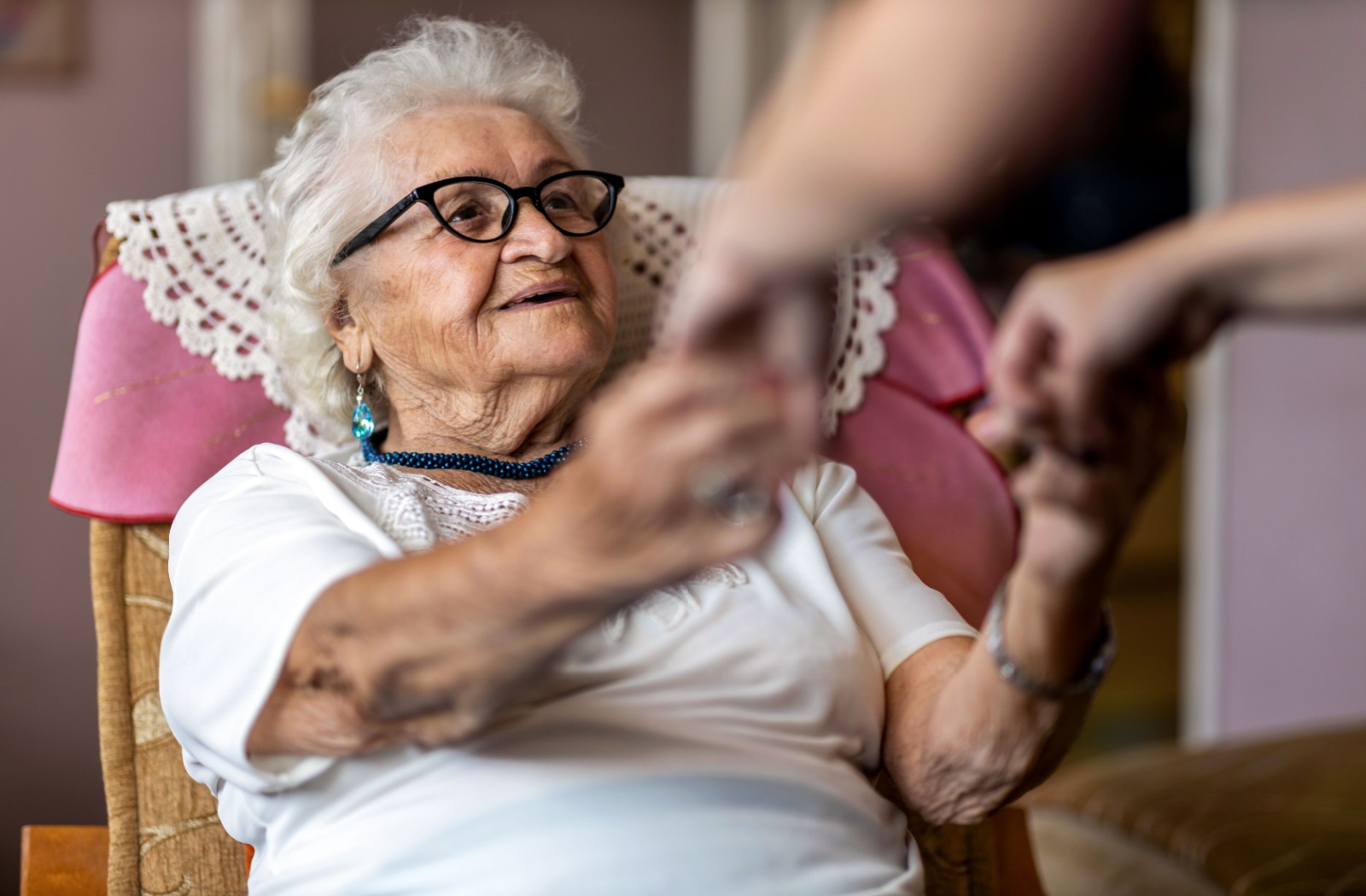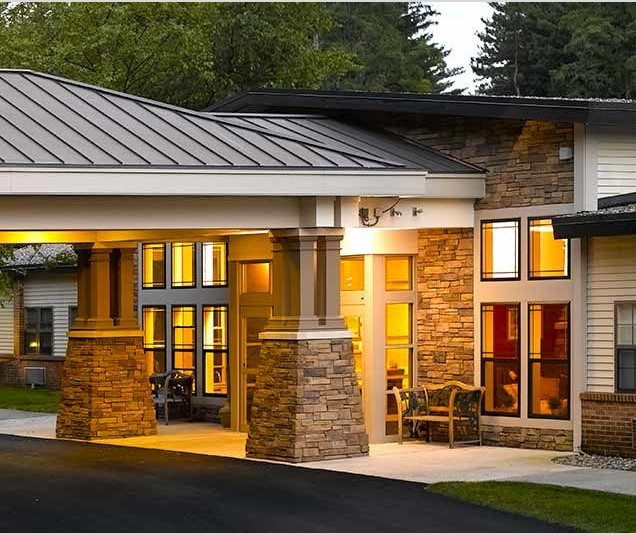Finding the proper care option for you or a loved one can feel overwhelming when you’re navigating different types of senior living communities. You might wonder about the differences between assisted living and nursing homes, and which one provides the right level of support.
Fortunately, it’s easy to distinguish these types of senior living communities. Assisted living focuses on helping residents maintain their independence while providing support with daily activities. Nursing homes, on the other hand, offer intensive medical care and round-the-clock supervision for those with significant health needs.
Key Takeaways
- Assisted living communities support daily activities while maintaining independence.
- Nursing homes provide intensive medical supervision and round-the-clock care.
- Your support needs, budget, and personal preferences guide the right choice.
- Other options, such as memory care, respite care, and independent living, may be more suitable for different situations.
What Are Assisted Living Communities?
What Assisted Living Offers
Assisted living creates a supportive environment where residents receive personalized help with daily tasks while keeping their independence. You’ll find trained staff available around the clock to assist when needed, whether that’s help with medication reminders or support getting dressed in the morning. The warm atmosphere encourages residents to participate in community life while receiving the individualized care they need.
Residents enjoy comfortable private apartments or suites that feel like home, complete with their own personal belongings and can choose to either bring their own furniture or use the provided furniture. Delicious, nutritious meals are served in welcoming dining areas where friendships naturally develop over shared conversations.
Who Benefits From Assisted Living
This level of care is suitable for seniors who can manage many tasks independently but require some assistance with activities of daily living. Your loved one may benefit from assisted living if they need help with daily activities, such as bathing, dressing, or remembering to take their medications.
Many residents thrive in this environment because they maintain their autonomy while having access to help when needed. The social connections and engaging activities often lead to improved well-being and a renewed sense of purpose.
Amenities and Social Opportunities
Assisted living communities offer vibrant spaces designed for connection and engagement. You’ll discover comfortable lounges where residents gather for conversations, well-stocked libraries perfect for quiet reading, and beautiful outdoor areas for enjoying the fresh air and nature. Many communities also feature on-site salons, movie theaters, and chapels for spiritual reflection.
The activity calendar stays complete with engaging programs that appeal to a wide range of interests and abilities. Residents might participate in arts and crafts sessions, enjoy live music performances, or join exercise classes tailored to their needs.
What is Nursing Home Care?
Higher Level of Medical Support

Nursing homes offer comprehensive medical care, staffed by licensed nurses and healthcare professionals, 24 hours a day. This setting provides comprehensive medical monitoring, wound care, physical therapy, and medication management for residents with complex health conditions. The environment is structured around providing clinical care and medical supervision.
Who Needs Nursing Home Care
This level of care becomes necessary when someone requires constant medical supervision or has multiple chronic health conditions that need ongoing management. Your loved one might need nursing home care if they have mobility issues that make them prone to falls, require assistance with most daily activities, or have medical conditions that need frequent monitoring.
Nursing homes also serve individuals recovering from serious illnesses, surgeries, or those with advanced cognitive conditions who need specialized medical attention. The decision often comes after other care options can no longer meet the person’s complex health needs.
How Can I Evaluate My Support Needs?
Daily Living Activities Assessment
Take time to honestly assess what help you or your loved one needs with everyday tasks, such as:
- Bathing
- Dressing
- Meal preparation
- Taking medications correctly
- Walking safely
- Getting up from chairs without assistance
Pay attention to cognitive changes that affect decision-making or memory. Notice whether social isolation has become an issue and if maintaining a home has become too challenging. These observations help determine the right level of support needed.
Getting Professional Input
Schedule conversations with healthcare providers who understand your or your loved one’s medical history and current needs. They can provide valuable insights into what type of care environment would be most beneficial. Many senior living communities will conduct their own assessments to help determine the appropriate level of care.
How Can I Financially Plan for Senior Living?
Assisted Living Costs
Assisted living communities typically operate on a private pay basis, with monthly fees that cover housing, meals, personal care services, and activities. The cost varies depending on the level of care required and the specific amenities provided. Some states, like us here in New York, offer. Long-term care insurance policies can also be used to cover costs at licensed assisted living communities.
Many communities offer different pricing tiers based on the level of assistance required, allowing you to pay for precisely the services you need. This flexibility makes assisted living more financially manageable than you expect. Veterans may also be eligible for VA Aid and Attendance benefits to help cover the costs of care.
Nursing Home Financial Options
Nursing homes often accept Medicare for short-term stays following hospital visits, and Medicaid typically covers long-term nursing home care for eligible individuals. Long-term care insurance policies may also help cover nursing home costs, depending on your specific coverage. Private pay is another option for those who don’t qualify for government programs.
Understanding Your Coverage
Research your insurance coverage and benefits before making decisions about care options. Contact your insurance provider to understand what types of care are covered and for how long. Research local and state programs that may offer financial assistance for senior living options.
Consider consulting with a financial planner who specializes in senior care to explore all available options and create a sustainable plan for the future.
Find Support Unique To Your Family With Peregrine
At Peregrine Senior Living at Guilderland, we understand that choosing the proper care option is one of the most important decisions you’ll make. Our compassionate team is here to help you explore your options and find the path that supports your unique needs and preferences.
Contact us today to schedule a personalized tour and discover how our approach to senior living can help you or your loved one thrive in this next chapter of life.













Meet the Experts - Your Inside Look at Senior LivingMar 12, 8:30amPeregrine Senior Living At Delmar PlaceDo you need detailed information on senior living? Do you want all your questions answered on things not detailed in brochures?
Learn insider tips, considerations and real guidance on senior living that only experts can provide!
Join us on March 12th, 2026 at Peregrine Delmar Place - registration to begin at 8:30am ... See MoreSee Less
0 CommentsComment on Facebook
Learn and experience insider tips, considerations and real guidance that only experts can provide in person! ... See MoreSee Less
0 CommentsComment on Facebook
Dining at our community is about more than what’s on the plate—it’s about connection, community, and the joy of gathering together.
Our talented culinary team crafts meals that are both delicious and nutritious, offering flavors that comfort and inspire.
From themed dinners to chef demonstrations, each meal becomes an opportunity to savor the moment and celebrate life’s simple pleasures. 🍴
peregrineguilderland.com/ ... See MoreSee Less
0 CommentsComment on Facebook
Today we celebrate the caregivers—those whose quiet strength and unwavering compassion bring comfort to so many.
We see the difference caregivers make every day: holding a hand, sharing a smile, or offering reassurance when it’s needed most. 💕
Your dedication reminds us that true care goes beyond tasks—it’s an act of love, patience, and humanity.
Thank you for all you do to make the world a more compassionate place.
peregrineguilderland.com/ ... See MoreSee Less
0 CommentsComment on Facebook
Another full house for our monthly cooking demo!
This month, Jeremy showed us how to make mini cheesecakes and everyone loved them! 🍓😊 ... See MoreSee Less
1 CommentsComment on Facebook
First 40 degree day in a while seemed like the perfect day for an ice cream outing! One of us even got a banana split! 😊🍦🍨 ... See MoreSee Less
3 CommentsComment on Facebook
Monday morning meditation! Thank you so much Sheryl for guiding us through a 30 minute meditation this morning. It was a first for many and we all enjoyed it and felt so relaxed after! 😊 ... See MoreSee Less
1 CommentsComment on Facebook